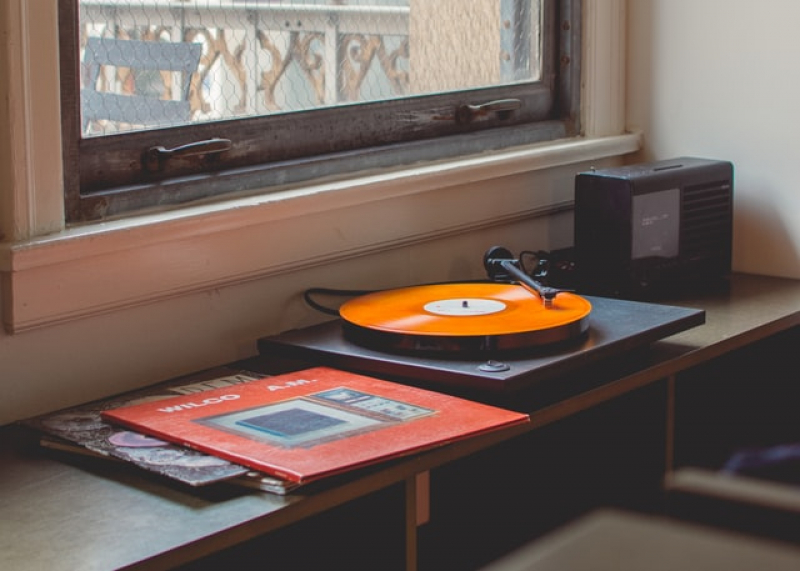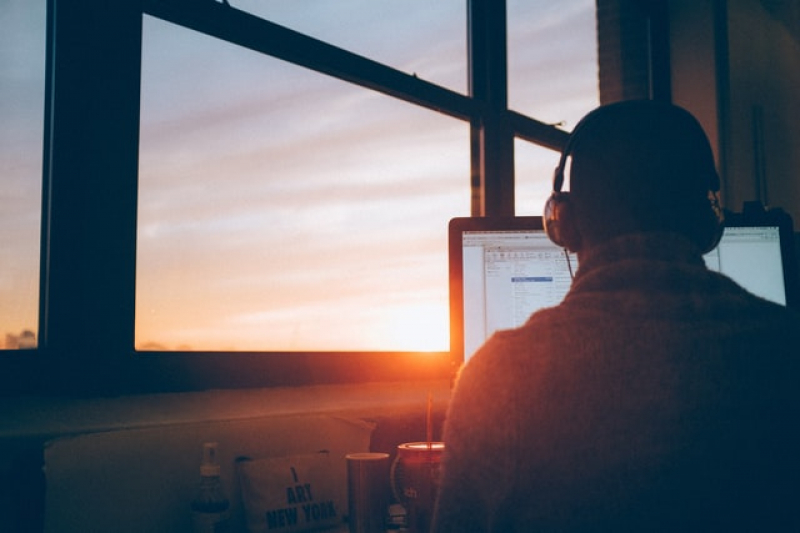In the digital age, and especially during the pandemic, many of us ended up performing most of our daily activities online. According to Comparitech, the average person spends six hours and 55 minutes looking at a screen each day.
First, you work or study on your laptop, then you read the news or order groceries online, and in the evening your friends who are also stuck in their apartments or even other countries suggest arranging a Zoom hangout. Do you feel like watching a movie or listening to music instead? This can primarily and most conveniently be done online, too.
You know that an excessive amount of screen time causes digital burnout but there doesn’t seem to be any alternatives: after all, what can you do: quit your studies because of the remote learning format or not talk to your friends? Common tips like “just don’t use your computer that much” seem to not apply here. So how do you deal with such a digital-based life? Here are some things that worked for me.
Accept it, don’t fight it (straightforwardly)
According to researchers, you shouldn’t aim to abandon all your internet-related activities, you should learn how to use it in a balanced sort of way. In my experience, strict measures like turning off all notifications and setting time limits for the usage of apps don’t allow you to achieve it and might even make it worse.
Without notifications, you get the urge to check the apps manually, which is even more time-consuming than seeing the messages you have received and deciding whether to answer them straight away or not. Time limits also turn into annoying pop-ups that you ignore and continue browsing your feed: they tend to appear at an inconvenient time and you don’t want to close the app straight away.
I suggest you accept the fact that in the modern world, we tend to spend a lot of time online and it’s not necessarily bad. Some things can’t be replaced by offline alternatives, so why say no to chatting with friends who are far away or finding new cool music on YouTube? Maybe that’s what you need right now.
Add new activities instead of abandoning the old ones
There’s no point in saying no to your smartphone if there’s nothing fun to replace it with. So how about getting back to your hobbies or making new habits, such as taking walks without your phone, or reading print books daily – even if for five minutes to start with. Chances are, you’ll end up spending more time off the grid than you intended to at first: fresh air and an exciting story will lure you in. Your screen time will reduce naturally, without any pain.

Credit: Annie Spratt (@anniespratt) on Unsplash
A bit more complex but also even more effective solution: pick up a hobby that involves doing something with your hands. There seems to be a new spark of interest in all kinds of arts & crafts, from pottery and painting to cooking and pyrography. You don’t have to excel at it but actually using your hands, not your mouse, for a change will feel fantastic.
Get back to the old media
Do you remember how exciting it felt to be able to look for all kinds of information and content online? “There’s no need to go out anymore – libraries, cinemas, video game venues are all here, on the web now!” Well, this doesn’t seem that great to some of us anymore, and many are happy to go analog for a change.
The same goes for your smartphone: at first, it felt like a relief that you didn’t need to carry an mp3 player, a map, or a book around – anything could be replaced with an app. But the idea of multifunctionality has its setbacks.
Yes, it’s all here, but there’s also too much of it. Our brains seem to not cope, so why not go back to devices and locations with just one function? Brushing the dust off your stereo or a DVD player somehow feels like a good idea now, in 2021. Plus, if something has only one function, chances are, it does it better than a multifunctional thingy with hundreds of ways to use it.

Credit: Travis Yewell (@shutters_guild) on Unsplash
Naturally, I don’t suggest going full analog and replacing everything with old-fashioned equipment, but I do believe that introduction of at least a couple of palpable, not virtual tools will make a difference.
For example, there are FLAC players that play music in the best possible quality – maybe this would seem like something you’ve always wanted. Or maybe you would like to collect vinyl records, go to the cinema more often (in recent years, there’s been an increase of old classic movies on the big screen, so it doesn’t have to be something new), pick books at the library, take film photos, and so on and so forth.
Luckily, there’s nothing to invent – it’s all been done before and I think it might do us good to go a little bit backwards in order to increase our screen-free time and make the most of it.
For more stories related to well-being in the modern world, check out our Mental Health Month articles or the one on self-care during exams.




